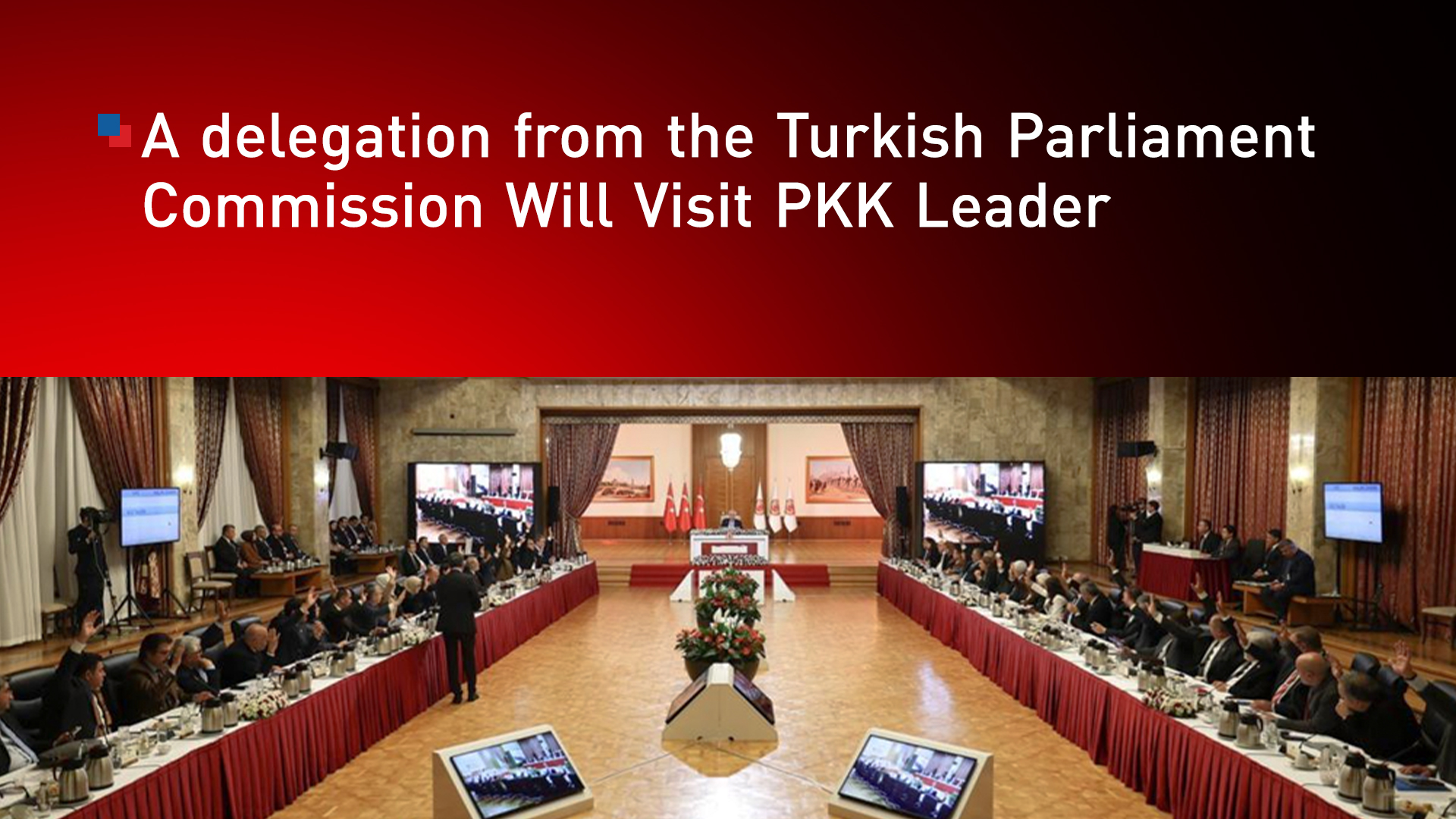A delegation from the Turkish Parliament Commission Will Visit PKK Leader
Türkiye's parliamentary commission approved sending a delegation to Imrali prison for talks with PKK leader Abdullah Ocalan, with 32 votes in favor. The decision signals a significant shift in Ankara's peace process approach, following Erdogan's announcement of a "new phase."

ERBIL (Kurdistan24) – Türkiye’s Parliamentary Commission on National Reconciliation, Brotherhood, and Democracy—commonly referred to as the “Peace Commission”—has officially approved a decision to send a delegation to Imrali Prison for direct talks with Abdullah Ocalan, the imprisoned leader of the Kurdistan Workers’ Party (PKK).
The vote was held during the Commission’s 18th session on Thursday, November 21, where members debated a proposal to formally authorize a parliamentary visit to Imrali. According to the records of the session, the motion passed with 32 votes in favor, 2 votes against, and 3 abstentions.
During the discussion, the Republican People’s Party (CHP) announced that it would not designate a member to join the delegation and walked out of the meeting hall. Despite this withdrawal, the Commission continued its session and proceeded to vote.
Parliamentarians from the Justice and Development Party (AKP), Nationalist Movement Party (MHP), and People's Democratic Party (DEM) all voted “yes,” enabling the decision to be approved by a clear majority.
With this vote, the Commission has formally opened the way for a parliamentary delegation to travel to Imrali and hold a meeting with Ocalan—an event that marks one of the most significant developments in Türkiye’s internal political landscape in years.
These developments come in parallel with Türkiye President Recep Tayyip Erdoğan’s recent declaration that his country is entering a “new and transformative phase” in its peace process.
Speaking on Nov. 5 to members of the ruling Justice and Development Party (AKP), Erdoğan revealed that he held a “constructive and fundamental dialogue” with senior officials from the DEM Party, who proposed allowing Ocalan’s message—concerning PKK disarmament—to be read before a parliamentary commission.
“They proposed the reading of Abdullah Ocalan’s statement before a parliamentary committee,” Erdoğan said. “All parties should participate in this meeting.”
Erdoğan added that the process has entered a “reflective stage”, requiring responsibility and cooperation from all political actors.
President Erdoğan also commented on MHP leader Devlet Bahçeli’s remarks regarding the possible release of former HDP co-chair Selahattin Demirtas, stating:
“Türkiye is a state governed by the rule of law. Whatever decision the judiciary makes, we are bound by it.”
Bahçeli had previously referred to the “new peace process” and raised the question of the future of both Ocalan and Demirtas.
On the same day, the DEM Party released a statement outlining the results of its recent meeting with Ocalan on Imrali Island. The party described the talks as “highly constructive,” lasting nearly three hours and focusing on the renewed peace process in Türkiye and the Kurdish regions.
The delegation stressed:
-the need for a peaceful and comprehensive resolution
-the restoration of trust between Kurds and Turks
-attention to the historical and sociological dimensions of the Kurdish question
-establishment of a permanent reconciliation mechanism to anchor democratic reforms
The party emphasized that the upcoming phase should address current challenges while laying the groundwork for a lasting constitutional settlement.
The convergence of positions among the AKP, MHP, and DEM Party has triggered cautious optimism among political analysts that dialogue—after years of stagnation—may be re-emerging in Türkiye’s approach to the Kurdish question.
Against this backdrop, the vote authorizing a parliamentary visit to Imrali takes on added significance.
By officially opening the path for a direct meeting with Ocalan under parliamentary authority, the Commission’s decision represents one of the clearest institutional signals yet that Türkiye’s political system is preparing to re-engage with the peace process on a broader scale.
As Ankara moves forward with what President Erdoğan has called a “critical and transformative stage,” the Imrali visit may become a central milestone in shaping the next chapter of dialogue, coexistence, and political negotiation inside Türkiye.